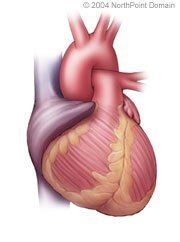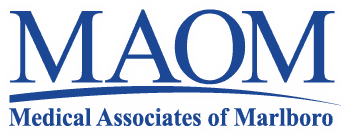Antiplatelet Therapy
Basic Facts
- Antiplatelet medications inhibit the ability of platelets to stick together, so that blood clots are less likely to form. Antiplatelet drugs are prescribed for patients who have a greater risk of clots forming in the blood vessels.
- Antiplatelets can be taken orally or injected.
- When used as directed, antiplatelets are safe and effective.

Antiplatelet medications inhibit the ability of platelets to stick together, so that blood clots are less likely to form. Antiplatelet drugs are prescribed for patients who have a greater risk of clots forming in the blood vessels. They include:
- Aspirin;
- Ticlopidine (Ticlid);
- Clopidogrel (Plavix); and
- Dipirydamole (Persantine).
WHEN IS IT INDICATED?
Antiplatelets are commonly prescribed:
- To prevent plaque rupture and complete artery blockage;
- To prevent complications following coronary artery bypass surgery, angioplasty and stenting, or carotid stenting;
- To treat heart attack and ischemic stroke and prevent new ones;
- To treat mitral valve disease;
- To treat peripheral arterial disease; and
- To treat unstable angina.
PRE-TREATMENT GUIDELINES
Because of possible interactions with other drugs, the patient should report all other medications that he or she is taking to a physician prior to undergoing antiplatelet treatment.
If the physician intends on placing a drug-eluting stent, the patient should tell the physician if he or she will need to stop taking antiplatelet medication prematurely.
WHO IS ELIGIBLE
Physicians consider many factors when prescribing antiplatelets, including:
- Gender;
- Age;
- Kidney function;
- Liver function;
- Pharmacokinetic factors, such as the drug's rate of absorption;
- Interactions with other medications;
- Lifestyle habits, such as smoking and drinking;
- Other illnesses or medication allergies;
- Insomnia;
- Possible complications; and
- Effectiveness.
People with a known allergy or sensitivity to a drug are not eligible to take certain classes of medications.
RISK FACTORS FOR POSSIBLE COMPLICATIONS
Factors that may increase the chances of harmful reactions to medication include:
- Taking several prescription and over-the-counter drugs simultaneously;
- Drinking alcoholic beverages in excess;
- Advanced age;
- Diseases, such as diabetes mellitus or depression; and
- Drug allergies.
Patients should use antiplatelet medications with caution if they have low blood pressure, liver disease, or a history of stomach ulcers. Patients should also consult with the physician if they are taking anticoagulants or nonsteroidal anti-inflammatory drugs, such as aspirin or ibuprofen.
Ticlopidine may cause a decrease in white blood cells and thrombotic thrombocytopenic purpura.
WHAT TO EXPECT
To determine the proper dose, the physician will order a blood test, called the international normalized ratio (INR), which indicates how long it takes blood to clot. Additional INR tests will be done to ensure an appropriate dosage is maintained.
Aspirin
Aspirin is taken orally and can be taken under differing circumstances. Daily aspirin helps to prevent clot formation. People who experience heart attack warning signs should chew an aspirin.
Taking aspirin isn't advised during a stroke, because not all strokes are caused by blood clots.
Ticlopidine
Ticlopidine comes as an orally administered tablet. It is usually taken twice a day. Patients should take each ticlopidine dose with a full glass of water and with food or just after eating to avoid upset stomach. The physician will monitor blood before and during treatment.
Clopidogrel
Clopidogrel is usually taken once a day with or without food.
Glycoprotein IIb/IIIa inhibitors
Glycoprotein IIb/IIIa inhibitors are typically given by injection at a hospital, either during treatment for a heart attack or just prior to angioplasty.
Common side effects of antiplatelets include:
- Stomach pain;
- Heartburn or indigestion;
- Nausea or vomiting;
- Upset stomach;
- Fatigue;
- Muscle aches;
- Headache; and
- A change in bowel habits.
The patient should report any of the following serious side effects to a physician immediately:
- Chest pain;
- Loss of hearing or vision problems;
- Red or purple spots on the skin;
- Bloody urine or stools;
- Unusual bleeding;
- Confusion or convulsions (seizures);
- Severe diarrhea;
- Severe nausea or vomiting, or vomiting blood;
- Difficulty in swallowing;
- Dizziness or lightheadedness; and
- Unexplained fever.
POST-TREATMENT GUIDELINES AND CARE
Antiplatelet drugs require medical supervision. The patient should not start or stop taking these medications without first consulting a physician.
The patient should tell the physician if any side effects develop from antiplatelet therapy.
Patients should take the following precautions to avoid injury:
- Avoid potentially dangerous sports;
- Shave with an electric razor;
- Use a soft toothbrush;
- Use waxed dental floss;
- Wear gloves for yard work and when using sharp tools;
- Wear shoes or non-skid slippers in the house;
- Trim nails carefully; and
- Use care with knives and scissors.
Copyright © 2017 NorthPoint Domain, Inc. All rights reserved.
This material cannot be reproduced in digital or printed form without the express consent of NorthPoint Domain, Inc. Unauthorized copying or distribution of NorthPoint Domain's Content is an infringement of the copyright holder's rights.
